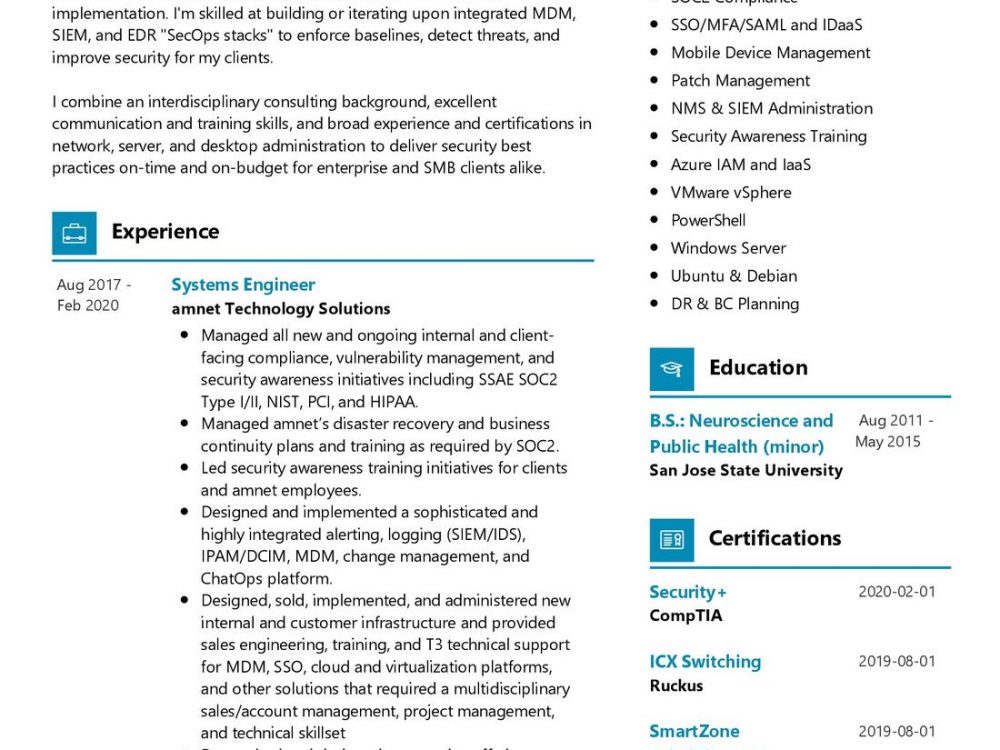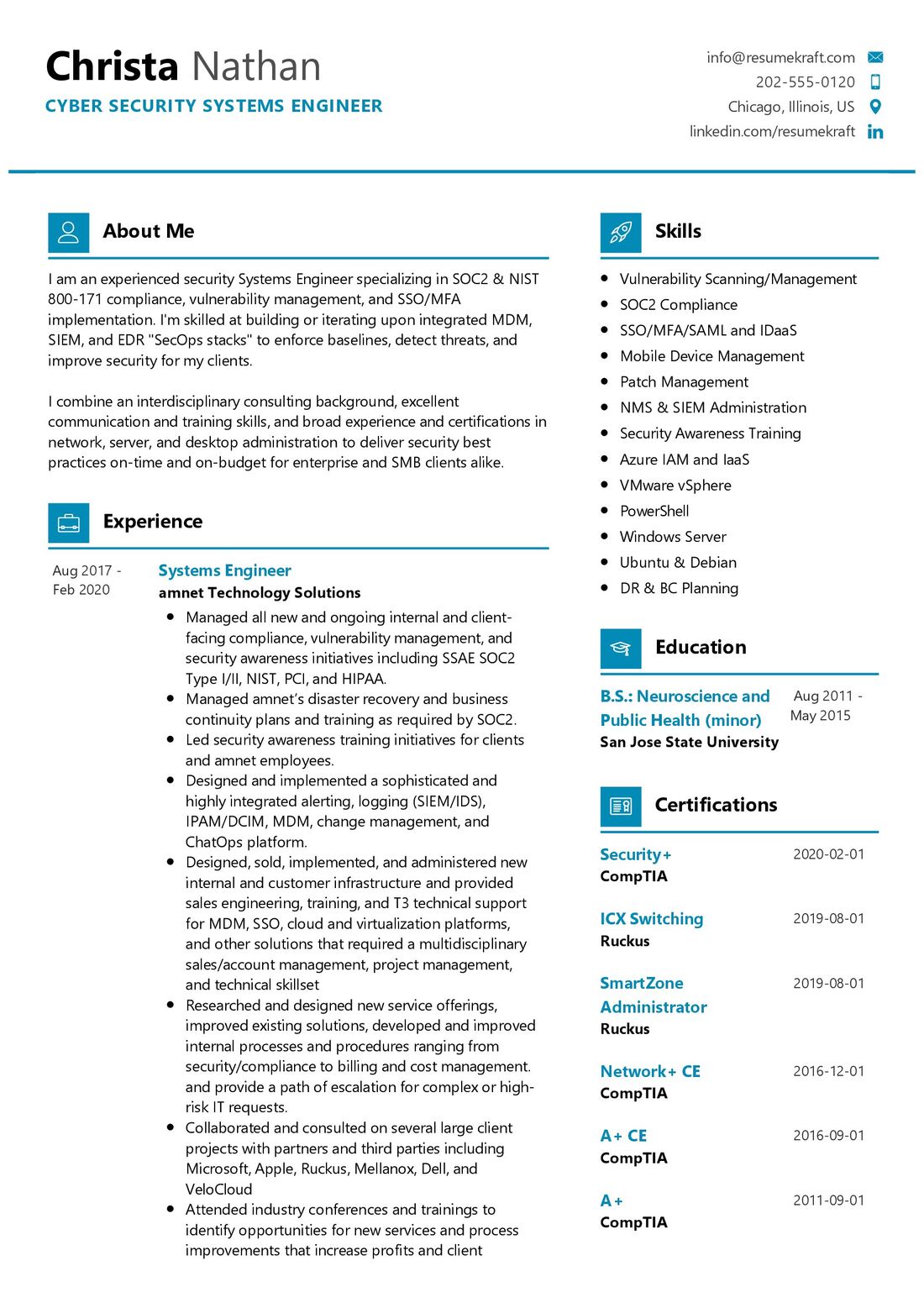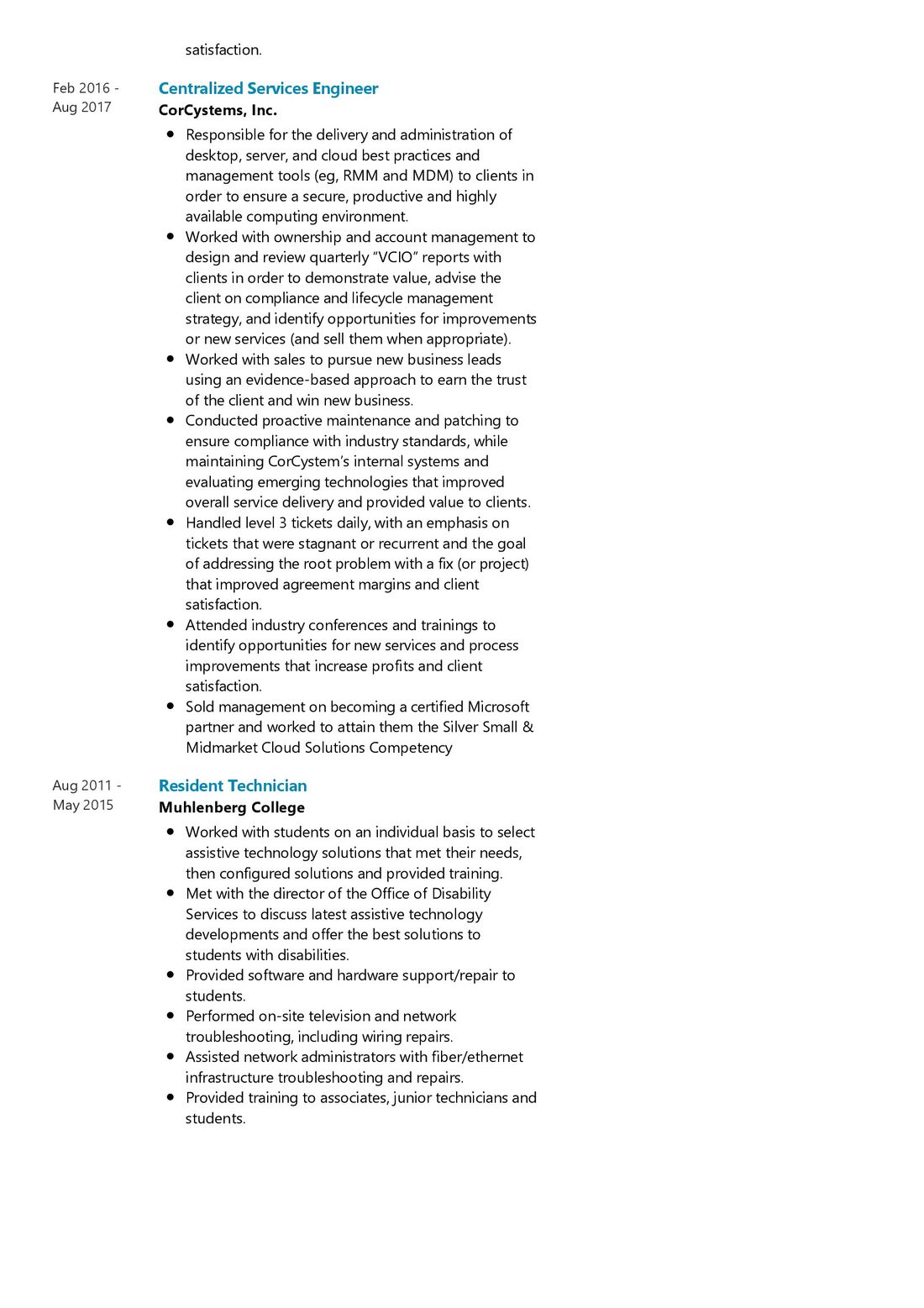What is the Role of a Cyber Security Systems Engineer?
In the digital age, the role of a Cyber Security Systems Engineer is more critical than ever. These professionals are the guardians of information systems, protecting sensitive data from unauthorized access and cyber threats. Let’s delve deeper into the role that stands as the first line of defense in the cyber world.
A Cyber Security Systems Engineer is tasked with the responsibility of designing, implementing, and maintaining security protocols and systems to safeguard an organization’s information assets. They work tirelessly to ensure the integrity, confidentiality, and availability of data, leveraging a deep understanding of network infrastructure, cryptography, and security protocols. Their role extends to constantly monitoring the systems for any irregularities, identifying vulnerabilities, and swiftly responding to security breaches to mitigate the impact.
What are the Cyber Security Systems Engineer Job Requirements?
Embarking on a career path as a Cyber Security Systems Engineer demands a robust educational background and a rich skill set. Let’s explore the essential requirements that pave the way to becoming a proficient Cyber Security Systems Engineer:
- A Bachelor’s or Master’s degree in Cybersecurity, Computer Science, Information Technology, or a related field, laying a strong foundation in the technical domain.
- Relevant certifications such as Certified Information Systems Security Professional (CISSP) or Certified Information Systems Auditor (CISA), which attest to your expertise in the field.
- Hands-on experience in working with various security tools and technologies, showcasing your practical knowledge and skills.
- Proficiency in programming languages such as Python, Java, or C++, enabling you to understand and work on complex security systems.
- Strong analytical and problem-solving skills, honed through experience, to identify and address security threats effectively.
Building a portfolio that demonstrates your experience in handling real-time security issues can be a significant asset in your career journey.
What are the Responsibilities of a Cyber Security Systems Engineer?
The role of a Cyber Security Systems Engineer is a dynamic one, encompassing a wide array of responsibilities that are crucial in safeguarding an organization’s cyber environment. Let’s delve into the core responsibilities that define this role:
- Developing and implementing robust security strategies to protect the organization from cyber threats.
- Conducting regular security assessments to identify vulnerabilities and recommending appropriate mitigation measures.
- Collaborating with different teams to integrate security measures into the development and deployment of IT systems.
- Monitoring network traffic and server logs to detect any suspicious activities and respond promptly to security incidents.
- Developing policies and procedures to ensure the secure handling and storage of sensitive data.
- Providing training and awareness programs to educate employees on cybersecurity best practices.
Each responsibility is a testament to the critical role that a Cyber Security Systems Engineer plays in an organization, ensuring a secure and resilient cyber environment.
Cyber Security Systems Engineer Resume Writing Tips
Creating a resume that stands out in the competitive job market is a crucial step in your career journey. Here are some tips to help you craft a resume that effectively showcases your skills and experiences:
- Highlight your experience in designing and implementing security solutions, showcasing your expertise in the field.
- Detail the security policies and procedures you have developed, illustrating your strategic approach to cybersecurity.
- Include any successful incident response strategies you have led, demonstrating your crisis management skills.
- Emphasize your continuous learning through certifications and courses, showcasing your commitment to staying updated in the rapidly evolving field of cybersecurity.
Remember to tailor your resume to the specific role you are applying for, aligning your skills and experiences with the job requirements.
Cyber Security Systems Engineer Resume Summary Examples
Your resume summary is a concise representation of your professional journey, highlighting your key skills and achievements. Here are some examples to inspire you:
- “Experienced Cyber Security Systems Engineer with a deep understanding of network security protocols and a proven track record in designing robust security architectures.”
- “Detail-oriented Cyber Security Systems Engineer with expertise in risk assessment and mitigation, adept at identifying and addressing vulnerabilities.”
- “Proactive Cyber Security Systems Engineer with a certification in CISSP, showcasing a rich background in implementing security best practices in large organizations.”
Each summary should resonate with the job you are targeting, offering a snapshot of your expertise and value proposition.
Create a Strong Experience Section for Your Cyber Security Systems Engineer Resume
The experience section is where you narrate your professional journey, detailing the roles you have undertaken and the impact you have created. Here are some pointers to help you craft a compelling experience section:
- Detail the security infrastructures you have built, showcasing your technical prowess.
- Highlight your role in incident response teams, demonstrating your ability to work under pressure and ensure business continuity.
- Include any innovative solutions you have developed to address security challenges, illustrating your creative problem-solving skills.
Remember to quantify your achievements, providing a clear picture of the value you bring to the table.
Sample Education Section for Your Cyber Security Systems Engineer Resume
Your educational background forms the foundation of your career. Here is a sample education section that you can tailor to your qualifications:
- Bachelor of Science in Computer Science, XYZ University, 2015
- Master of Science in Cybersecurity, ABC University, 2017
- Certified Information Systems Security Professional (CISSP), 2018
Include any relevant certifications and training programs that have equipped you with the necessary skills for the role.
Cyber Security Systems Engineer Skills for Your Resume
Your skill set is a reflection of your expertise in the field of cybersecurity. Here are some skills that you can include in your resume:
Soft Skills:
- Analytical thinking
- Attention to detail
- Collaborative mindset
- Effective communication
- Leadership abilities
Hard Skills:
- Network security
- Cryptography
- Penetration testing
- Security compliance
- Incident response
Each skill you list should be backed up with examples from your experience, demonstrating your proficiency in the field.
Most Common Mistakes to Avoid When Writing a Cyber Security Systems Engineer Resume
As you craft your resume, steer clear of common mistakes that can hinder your chances of landing the job. Here are some pitfalls to avoid:
- Using a generic resume for all job applications, failing to tailor it to the specific role.
- Overloading your resume with technical jargon, making it difficult for non-technical recruiters to understand your value proposition.
- Ignoring the importance of a cover letter, missing the opportunity to provide a personal touch to your application.
- Failing to proofread your resume, leaving room for typos and grammatical errors.
Avoid these mistakes to create a resume that is both professional and compelling.
Key Takeaways for Your Cyber Security Systems Engineer Resume
As we wrap up this guide, let’s revisit the essential points to keep in mind while crafting your resume:
- Focus on your achievements, providing quantifiable metrics to showcase your impact.
- Highlight your expertise in cybersecurity tools and technologies, demonstrating your technical proficiency.
- Include a section on professional development, showcasing your commitment to learning and growth.
- Provide examples of your problem-solving abilities, illustrating your knack for finding solutions in challenging situations.
Finally, feel free to utilize resources like AI Resume Builder, Resume Design, Resume Samples, Resume Examples, Resume Skills, Resume Help, Resume Synonyms, and Job Responsibilities to create a standout application and prepare for the Cyber Security Systems Engineer job interview.
With this comprehensive guide, you are well-equipped to craft a resume that not only showcases your skills and experiences but also tells your unique story in the cybersecurity domain. Remember, your resume is a dynamic document that evolves with your career, reflecting your growth and learning in the field. Best wishes on your career journey!



